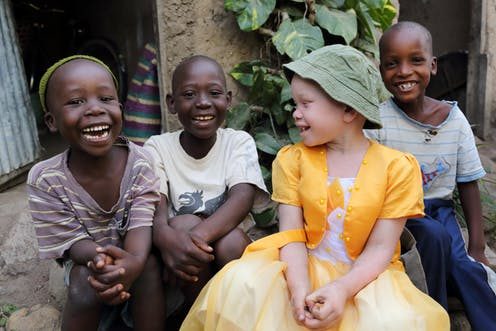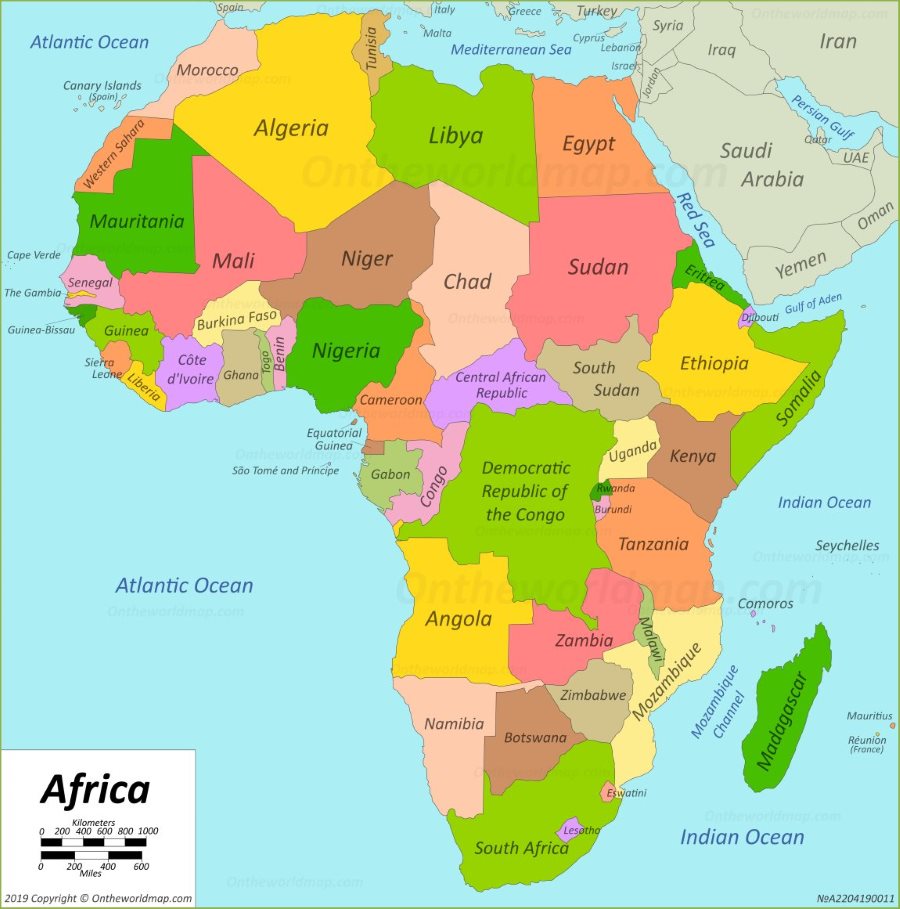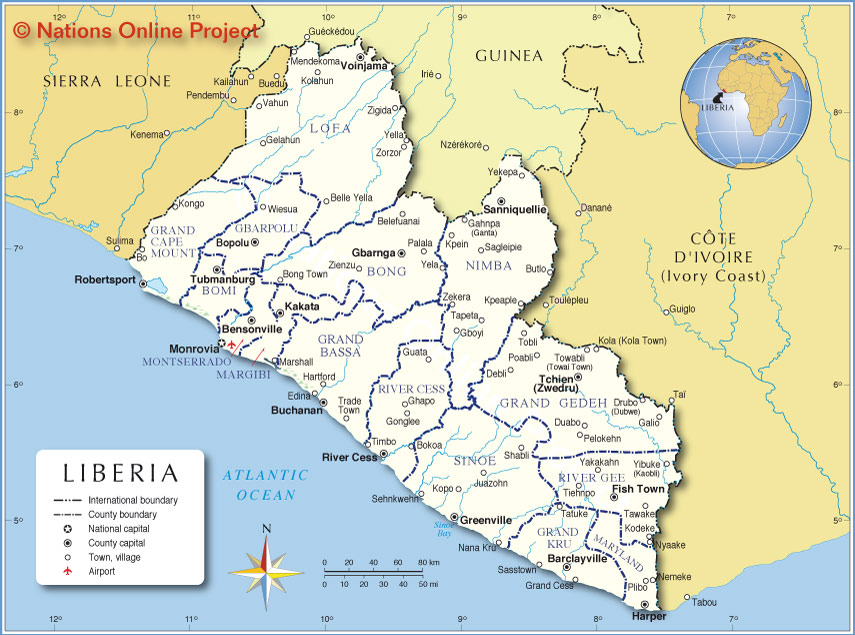The article below contains a number of interesting views – from various points of view – which throw light on the why and how of ritualistic murders and associated activities in Nigeria, commonly referred to as ‘money rituals’. It also mentions a number of recent ritual murder cases, some of them have been included in previous posts.
Personally I find the statement of a Catholic priest, Fr. Oluoma, perhaps the most convincing, simple as it was. He said that, had killing for money rituals been proven to have any form of potency, juju priests would have been on the World’s Richest Peoples list. Hilarious, simple, and convincing.
But another expert spoken to, the Chief Priest of Aroh Deity in Abagana community, Njikoka Local Government Area, Dr Paul Anieto, said that logic alone cannot explain the whole of life, including the accumulation of wealth.
Without mincing his words he stated that money rituals work. Nevertheless, he was quick to point out that there are various kinds of rituals for wealth.
According to the Aroh Deity Priest, some rituals involve the use of human body parts while others don’t. (…)
The native doctor clearly stated that he does not engage in the kind of money ritual that involves human body parts or blood, because it is criminal. Moreover, he said, it has deadly consequences for everyone involved: the instigator, the perpetrator, and the juju priest who executes the ritual.
Let’s hope he was sincere.
(webmaster FVDK)
What we know about ritual killings for money, Juju priests, Imams, Pastors, others speak

• Money ritual real but there are consequences —Aroh Deity Priest
• If money rituals have potency, juju priests would be on Forbes’ rich list —Fr. Oluoma …
• Faulty parenting, poor education, bad governance driving youths to money rituals —Rev. Hayab …
• Money rituals promoted by materialistic clerics – Sheikh Nuru Khalid …
• Killing for money rituals, haram in Islam —Shi’ite cleric
Published: April 30, 2022
By: Luminous Jannamike, Abuja – Vanguard News, Nigeria
These days, reports of certain killings in Nigeria, where the human body is decapitated and sensitive parts harvested are believed to be for ritual purposes. In some instances, especially, if the motive remains unclear, some people assume they must have been about money-making.
However, other people, including Christian and Muslim clerics, don’t believe in the efficacy of money rituals. By that, they mean there is nowhere in the history of humankind where anybody has made real cash appear through the means of magic. They simply describe such an idea as a mirage.
But the belief in the efficacy of money ritual killings continues to be rife, especially in a society like the Nigerian context where religion and the supernatural appear to be the opium of the people due to bewildering economic hardship and widespread poverty.
Investigations reveal that the ritual killings heighten around December and the year before general elections, because people need money to spend during the annual yuletide celebrations and other financially draining pre-election meetings and rallies.
As the gap between the rich and the poor; the haves and the have-nots widen across the country, the desperation to overcome the expanding class divide propel many citizens, particularly the youth demography to turn to the dark sides of the supernatural with the hope there will be a wealth redistribution in their favour through unseen support.
Recall the recent tragic drama in Ogun State where a 20-year-old lady, Sofiat Kehinde, was gruesomely murdered and her head severed for money ritual by four teenager suspects; Soliu Majekodunmi; 18, Wariz Oladehinde, 18; Abdulgafar Lukman, 19, and Balogun Mustaqeem, 20.
They conspired to kill Kehinde and played different roles in her murder. Her skull was severed in her lover’s( Majekodunmi) room after a passionate round of love-making.
Fortunately, the teenagers were apprehended by security men after they got wind that the boys were engaging in something sinister in a building located at Isale-Ijade, Oke-Aregba area of the State.
That is the nature of the Nigerian society where people, including kids who should be minding their studies and dreaming of a glorious future for themselves are pre-occupied with looking for metaphysical explanations to clarify otherwise simple phenomena of pervasive poverty in the land.
However, while some traditional religion practitioners speak of some fetish rituals some embark on for money-making, religious leaders, especially in Christendom and Islam agree to an extent that although life in general is guided by faith in the invisible, those who pursue wealth through the execution of any form of violent homicide are under an illusion, from a spiritual standpoint, that genuine help will come to them.
One of such clerics is Rev. Fr. Oluoma Chinenye John, a priest of the Catholic Archdiocese of Abuja who commands a following of 689,903 people on Facebook alone.
If money rituals have potency, juju priests would be on Forbes’ rich list — Fr. Oluoma
According to the Catholic priest, had killing for money rituals been proven to have any form of potency, juju priests would have been on the World’s Richest Peoples list.
In an exclusive chat with Saturday Vanguard, he blamed society’s emphasis on material prosperity for the pressure felt by those, particularly youths who resort to voodoo to make money.
Fr. Oluoma also chided fellow preachers who promote the perception that financial “seed-sowing” in religious houses would translate into miracle wealth.
“Two things I want to say are: First, ritual killing for money is an illusion, it doesn’t work. If it did, the Babalawo (juju priest) who is paid to do the rituals would have done it for himself and be living large. Even the governments would have been using prisoners condemned to death for money rituals instead of wasting their blood by hanging or firing squads. It (money rituals) is an illusion like magic.
“Secondly, preachers of the gospel should stop the prosperity gospel, they should teach people the values of honesty, diligence, generosity and hard work. The emphasis on material prosperity puts pressure on people who resort to any means to make it,” Fr. Oluoma, who shepherds a congregation at St. John Mary Vianney Catholic Church, Trademore Estate, Lugbe Abuja, said.
Faulty parenting, poor education, bad governance leading youths to money rituals —Rev. Hayab
For Rev. John Hayab, the Vice Chairman of the Christian Association of Nigeria in the 19 Northern States and the FCT, nowadays many people including minors seek supernatural solutions to basic economic issues that could be resolved through education and logic partly because of bad leadership and the faulty upbringing of children.
Speaking with Saturday Vanguard, the vocal preacher who is also the Country Director of Global Peace Foundation in Nigeria, also said people who traffic in stories of how supernatural power has prospered certain people do so largely to further mislead those who find it hard to accept that someone else can succeed through the ethics of hard work, prudence, and sheer ingenuity.
He said, “The way and manner many of our youths are deviating from moral values and embracing evil just to make money are dangerous for a peaceful future. There are many factors responsible for their going into ritual killings to make money instead of pursuing education that will lead them into researching and investing in science and technology.
“Other nations are doing well in these regard because they have laid a good solid foundation for both the educational, moral and spiritual growth of their nation and children.
“The Bible has admonished us to train a child in the way he should go so that when he grows old he will not depart from it (Prov 22: 6). So, what type of training and upbringing are many Nigerian children getting from parents, neighbors, and even leaders?
“Our society celebrates rich people without questioning the source of their wealth. Churches recognise the best-dressed worshippers and members with big cars not minding the source of all they flaunt around.
How will poorly brought-up children not think that money is everything and go after money anyhow just to be recognised and celebrated?
“Our society and our youths will reject the temptation of killing for money when parents bring them up in the fear of God and love for fellow human beings. Everyone should therefore take parenting seriously by helping to raised godly and responsible children.
“Also, the government must help to make sure our teeming youths have an equal opportunity like their counterparts around the world. A country where basic services are not available can make the youths who are not patient want to make money by all means just to afford some basic human needs.
“When you (government) give your youths poor education, they will use their half-baked knowledge to do wrong things. We should lead our youth by example.
“Likewise, faith leaders should preach sermons that will guide the young people right not misleading some of them with wrong definitions of prosperity. Prosperity is not just about having money. A healthy man, contented, and happy doing what he knows best for the glory of God and the good of all humanity even if he has not much cash in his account or pocket is a prosperous person.”
While there appears to be no logical link between wealth and rituals, the rising incidences of gory killings in our society by suspects who got into trouble with the law, because of their desperation for money are worrying and the society must be held to account for the phenomenon.
Money rituals promoted by materialistic clerics —Sheikh Nuru Khalid
The immediate past Chief Imam of the National Assembly Legislative Quarters’s Jum’mat Mosque, Apo, Abuja, Sheikh Muhammad Nuru Khalid who spoke to Saturday Vanguard from his location in Mecca, Saudi Arabia, where he is currently observing the lesser Hajj, said the society has lost its sense of value; thereby, placing materialism above spirituality.
He also said that the ultimate goal of some people who engage in gruesome murders for money was the acquisition of political power in the country; stressing that greed also forms the basis of such gory killings.
Sheikh Khalid maintained that greed was condemnable not only in Islam, but in other religions.
The Islamic scholar, who also commands a mass following of 138,266 people on Facebook, stated: “We have to acknowledge that our society is in trouble. Values are lost. Gradually, we are becoming a valueless society. We glorify money and other forms of materialism above spirituality which is increasingly becoming absent in the mosques and churches.
“Materialism is taking the place of spiritualism in our preaching and actions, because the Imams and Pastors are less concerned about spiritual things. If you have a lot of money, you can garner a lot of respect in the society.
“Other issues responsible for the mad rush for money rituals are corruption and the get-rich-quick deceit. Our political system is also one of the factors fueling criminality in the form of money rituals, because without money, you don’t have power. People want money to acquire power. So, they are desperate in search money to reach the political position of power.
“But, if you put all these things together, they will tell you why all the religions are against greed. There are many verses of the Qu’ran and Hadiths of the Holy Prophet, cautioning people to desist from greed. That is why Islam is against inhuman activities that endanger lives, dignity, and the wealth of the common man.
“Above all, we need to do more to bring back the society to its normal sense, because abnormalities are becoming norms in our society.”
There is a telling example of this odd trend of abnormality becoming the norm in the story of 33-year-old suspected ritualist, Afeez Odusanya, who was arrested by operatives of the Osun State Security Network, codenamed ‘Amotekun’ for extracting teeth of dead bodies at a burial ground.
Odusanya, who said he did it for a money ritual when he was paraded at Amotekun command, Sabo area, Osogbo, disclosed he started his quest for money ritual in 2016 but it failed twice after extracting teeth from two different bodies in Sagamu, Ogun State.
Rather than accept that what he set out to achieve is impossible, the suspected money ritualist doubled down on his exhumation of buried corpse believing it would ultimately succeed if he added this and that to the process.
People like Odusanya have never seen the rituals translate into money or success, but they still attempt it anyway. By killing people, they get drawn into the relatively profitable trade in human body parts. They do not need to see it work; they just need to believe and start relating to the phenomenon as true.
Killing for money rituals, haram in Islam —Shi’ite cleric
But, a leading Muslim cleric of the Shi’ite sect in Sokoto caliphate, Sheikh Sidi Munir, maintains that tampering with the human body for ritual purposes whether efficacious or not is inglorious in Islam.
He, however, noted that the more killing for money ritual is hyped, the more people believe that others participate in it because it is perceived to be efficacious, and the more those who benefit in the trading of human parts oil the demand and supply chain.
In an exclusive interview with Saturday Vanguard, the Islamic cleric said: “In Islam, human dignity is a right given by God to all humans, who are referred to in the Qur’ân as God’s vicegerents on earth.
“Islam grants certain rights to humans before they are even born and others after their death. Whether dead or alive, the human body, created by God in the perfect shape, must be given dignity and respect.
“So, money ritual is condemnable in Islam, and the use of human body parts for making medicine, charms and amulet for any reason is haram (forbidden). It is unlawful in Islam to tamper with a human body, and a Muslim who persists in committing these kinds of rituals will find himself on a path that will eventually lead him into becoming a non-Muslim.”
On how to turn the minds of people, especially the youths from killings for money rituals, Sheikh Munir alluded to one of the Hadiths (traditions) to buttress the need for clerics to keep preaching repentance messages from the pulpits.
He said, “In one of the Hadiths of the Prophet Mohammad (SAW), a man was in the habit of digging up graves to harvest human body parts.
One day, he met a woman in a grave and had sexual intercourse with her. Afterwards, a great calamity befell him. He went to a Mallam who told him he would burn in hell fire, because his predicament was a result of his evil deeds.
“The distressed man seized the Mallam and killed him. Then, he went to another Mallam who told him that if he would repent of his sins, the Almighty God will forgive him and take away his reproach. The evil man turned away from his evil ways and became a good Muslim. So, as clerics, we need to keep preaching repentance always.”
Money ritual is real, but… —Aroh Deity Priest
Meanwhile, the Chief Priest of Aroh Deity in Abagana community, Njikoka Local Government Area, Dr Paul Anieto, told Saturday Vanguard that logic alone cannot explain the whole of life, including the accumulation of wealth.
According to him, to say there is nothing like money rituals is to say there is nothing like mysticism in life. He said that to stretch the logic of that denial, implies that there is nothing like God, because many believe that there is a mystical side to the nature of God.
He explained that there are Christians who believe in the transubstantiation of substances i.e. the transformation of forms, for instance, of the water and the wine into the body and the blood of Jesus Christ once they are consumed in the Holy Communion.
Chief Anieto without mincing his words stated that money rituals work. Nevertheless, he was quick to point out that there are various kinds of rituals for wealth.
According to him, some rituals involve the use of human body parts while others don’t. However, the blood of certain animals like rams, bulls, and birds are required.
The native doctor clearly stated that he does not engage in the kind of money ritual that involves human body parts or blood, because it is not only criminal, but also has deadly repercussions for all the parties – the wealth seeker, his collaborators, and the juju priest who executed the ritual – involved.
Dr Anieto said: “Some ignorant juju priest make use of human beings as sacrificial materials for money rituals and lucky charms. But this is not what the African culture teaches.
“Rituals are basically an intercession between the mundane and the spiritual. It is unfortunate that what we see today are so many committing various forms of dangerous and inhuman acts in the name of money rituals.
“I don’t engage in human money rituals and you can never see any real adherent of Odinnani (Igbo traditional religion) engage in money ritual, because “Ani” forbids the shedding of human blood. Violating this taboo comes with devastating consequences, because all deities in Igbo culture requires tooth-for-tooth and blood-for-blood.
“To accumulate wealth requires hardwork and business acumen. This is what Odinaani teaches but it is unfortunate that today’s youths lack this important virtue. They want to succeed at all costs, not minding who gets hurt in the process. They are ready to kill and sacrifice human beings for money rituals without considering the consequences of their action.
“There is prosperity charm which does not require the use of human beings or human parts but you must first have a mundane source of income to make it work. Do not be deceived into believing that there is a spirit that brings money for anyone out of thin air without a mundane source of income even in odious money rituals where human blood and body parts are involved.”
Psychologist speaks
Above all, a professor of psychology at the University of Lagos (UNILAG), Oni Fagboungbe, said rituals for both money and success exist only in the perception of the people.
He explained that for those who do money ritual, it is their faith that makes the ritual for money work for them and not the incantation or the ritual itself.
To him, it is the law of perception that is at work in cases of successful money rituals. If you perceive a situation as real, it becomes real. That is it. It is not the ritual that brings money, it is their mind and the attachment they give to it.
Fagboungbe decried the spate of ritual killings for money among the youths, and said there are several psychological laws that explain these behaviours.
According to him, “There is the Destalk psychology that says the part can never be better than the whole. The children cannot do something that is not rampant in their country.
“There is also what is called observational learning. This is the most active form of learning. These youths observe what goes on and imbibe it.
“Additionally, the law of effect says any stimulus that brings pleasure will be maximised and the one that brings pain will be minimised. These youth see the society. They see politicians commit crimes and they also see them get out of them and all sort of things. They see how the society eulogise and applaud dubious characters.
“So, there are no deterrent variables available. People do as they like and get away with it. You will hear Yahoo boys say that if they give money to the police, they will be let off the hook.”
While Christian and Muslim religious leaders attempt to undermine the phenomenon of money rituals by appealing to reason and by pointing out how illogical such a belief is, some analysts say that both logic and the law are powerless to serve as the basis of dissuading those who would not be dissuaded from their culturally perception of life and their place in it, because the irrational often trumps the rational in the real world.
Legal prosecution of suspect may have the power to nip in the bud any attempt at senseless killing in the name of seeking wealth, but people will keep believing what they want to believe about the efficacy of money rituals.
Therefore, to effectively tackle the obnoxious practice of money rituals in the society, the government must entrench the practice of good governance and do all it would take to pull the economy out of the doldrums that has widened the gulf between the rich and the poor in the country.
Ritual killing is real, herbalist speaks too
Additional report
By Evelyn Usman
According to him: ‘ I inherited this trade from my late father. Before he died, he warned me never to indulge in any rituals that involves human blood. He told me that some of his professional colleagues died miserably because they practiced money rituals.
“He also told me one of them lost seven of his children after killing a virgin for money rituals. My job is to prepare concoctions with herbs and soap for cure of diseases that are planted into individuals by wicked people.
“Unfortunately, some of us who do legitimate business in this profession are not rich, when compared to those who are into money rituals. While they could be paid between N500,000 and N2 million naira depending on the outcome of the rituals, the legitimate herbalists may die without having N100,000 in bulk .
“Blood is potent for money ritual making. It has several types . But the only thing those patronizing herbalists who practice money rituals don’t know, is that one killing may never be enough. Killing of one person is just the introductory part. As long as the person wants to be rich, he would be sacrificing human beings to renew that evil covenant because the demon in charge of money always requires blood.
“Unfortunately, most people who patronize these herbalists don’t also know they are destined to be rich. These herbalists only demand human blood to fast track their predestined wealth”.
Some recent ritual killings —Lagos
A vivid instance was the murder of 24-year-old Precious Okeke, who just concluded her National Youth Service Corp. The unsuspecting lady had paid a visit to her fiancé ,Maxwell Njoku, at his Ajah , Lagos abode, only for her decomposing remains to be discovered in the apartment three weeks ago.
Report had it that her supposed fiancé allegedly killed her for money rituals, with an instruction by his herbalist to keep her body in the apartment for seven days, after which he would transform into a multimillionaire. Unfortunately, a curious neighbour traced the disturbing stench to the apartment before the expiration of the seven days .Another bizarre incident occurred at Araromi Street in the densely populated Oshodi area of Lagos, following the alleged killing of a mother of five by her husband for money rituals.
In this case, the suspect Sogei Jafairu, who hails from Etsako Central Local Government Area of Edo state, was suspected to have poisoned his wife’s food and mistakenly ate it. While his wife did not survive it, he did and reportedly opened up on his deed.
Again in Lagos, One Sherifat Bello was arrested by the Police after he confessed to killing his wife and burying her remains in a shallow grave, for money rituals .
Rivers state
This barbaric act assumed a cannibalistic dimension following the arrest of a suspected kidnapper alleged to have killed one of his victims and used his intestines to prepare pepper soup in River State.
The suspect, Roland Peter, according to the Police in River State , abducted his victim from his house and was at the verge of eating pepper soup and yam porridge prepared with parts of the body of his victim’s when the police swooped on him and some accomplices.
Ogun State
Ogun State seems to be taking the lead in the report on killings for money rituals. Recently, three teenagers were allegedly caught burning the head of a girl they killed for money ritual purposes at the Oke Aregba area of Abeokuta in Ogun State.
The teenagers: Wariz Oladehinde, 17, and Abdul Gafar Lukman, 19, and the 20-year-old, Mustakeem Balogun, confessed during interrogation that the victim identified simply as Rofiat, was the girlfriend of one of them who was lured into their apartment, where they cut off their heads .
On why teenagers engage in money rituals remains a riddle to unravel.
Other arrests made by the Police in Ogun State involved Pastors and Islamic clerics allegedly involved in killings for money rituals.
There had been several other cases of killings for money rituals in the state .
Enugu
In Enugu, the south-east region of Nigeria, the story is the same. A housewife, Mrs Ifebuchukwu Onyeishi narrated recently, how her husband, Chidi Onyeishi, a tricycle operator , in connivance with a nonagenarian Pastor, allegedly killed their seven-year-old son for a money ritual.
The list is endless, with the introduction of different devices to achieving the devilish act.
Clergyman speaks
Speaking with Saturday Vanguard, the General Overseer, Apply Praise Ministry International and Chairman, Christian Association of Nigeria, Jakande /Bungalow district of Ejigbo, Pastor Segun Olatunde , said killings for money ritual did not just begin today, adding that he met the ugly phenomenon while growing up as a child.
Asked if it worked , he replied affirmatively . According to him: “Yes, it works for them. Because if it isn’t, people will not be indulging it in the practice . It has been for a long time . I recall as a growing child , our parents warned us never to accept anything from strangers, especially when going to school.
Today, there are different versions of it. Some use human parts to prepare charms , while others use the parts to enhance their business. For some, it is to attract money and favour, to them. It is mysterious, just as money is mysterious and answers to blood.
“Recently some persons were arrested while they were burning some human parts to prepare charms for money rituals. I don’t know how they do it but those arrested said they were burning the human hand for money rituals. For some, the money must be spent in a day, for new ones to come and failure to finish it that day attracts dire consequences.
Killing humans does not guarantee being rich — Ifa Priest, Araba Ifayemi Elebuibon
By Shina Abubakar, Osogbo
A foremost traditionalist and Ifa priest, Araba Ifayemi Elebuibon has said that killing human does not guarantee being rich stressing that many spiritualists that embark on it are actually living a miserable life.
According to the renown Ifa Priest, “money ritual is in two ways, first, the popular gruesome killing of human with a view to using their body parts for money is more of magical than ritual. Over the years of my being a priest, I have never seen or heard any Ifa corpus about killing human for money rituals. It is not a certainty but magical. Many of the spiritualists involved in the illegality are themselves poor.
“If it is certain that once you kill someone and severe body part, mix it with certain things you start getting money, why are the herbalists still poor? Many of those caught after perpetrating the killings and used the body parts still complained that it didn’t work for them. So, it is not ritual but magic. Ritual is what you do regularly to sustain a level of flow of spirituality. In Yoruba tradition, the money ritual does not involve killing humans. It is called ‘Awure’, ‘Osole’. It involves mixing natural materials to enhance business and getting favours, it does not involve killing humans, it may involve using goats, pigeon etc. Those who are responsible for the act are mostly Muslim and Christian clerics. The records are always clear, most of those arrested by police and even paraded are either pastors of Church or Muslim clerics. “To stop the menace, parents must be responsible and train their children in the way of God. We must return to our values, placing integrity above materialism. Parents must be responsible for their children’s welfare and they should not be expecting their children to pay house rent and feed the family. Also, religious leaders must stop giving respect or title to those with questionable wealth. We must collectively eliminate the menace in our society. Killing humans does not guarantee being rich.
Source: What we know about ritual killings for money, Juju priests, Imams, Pastors, others speak






